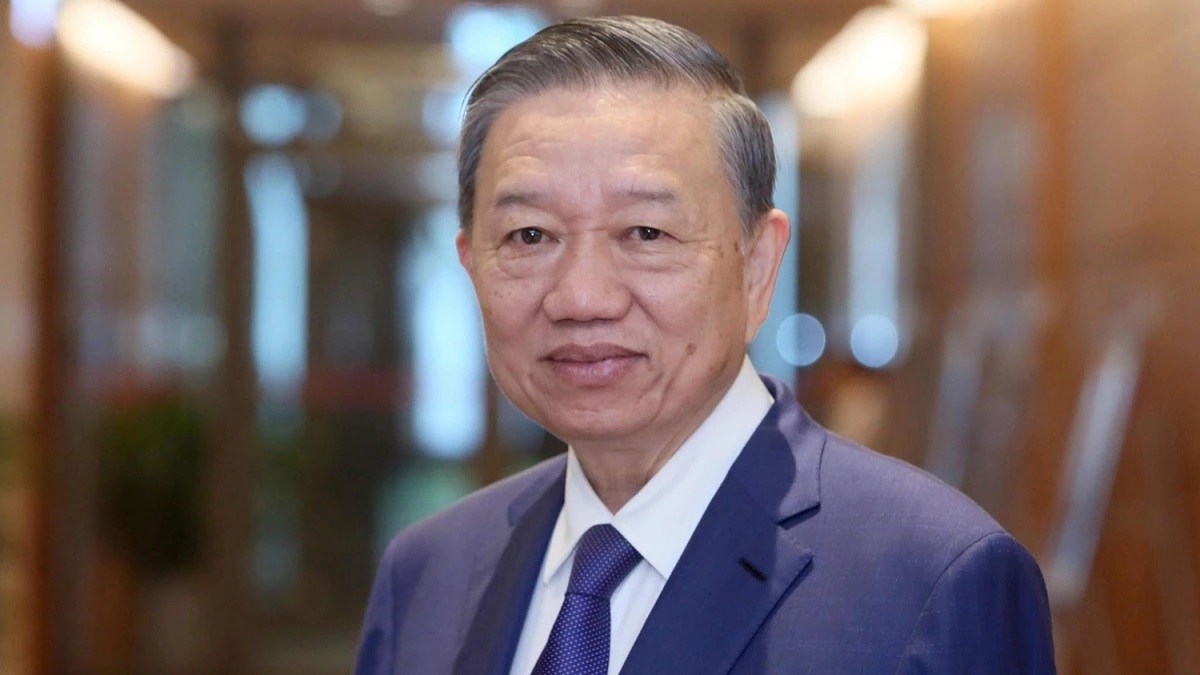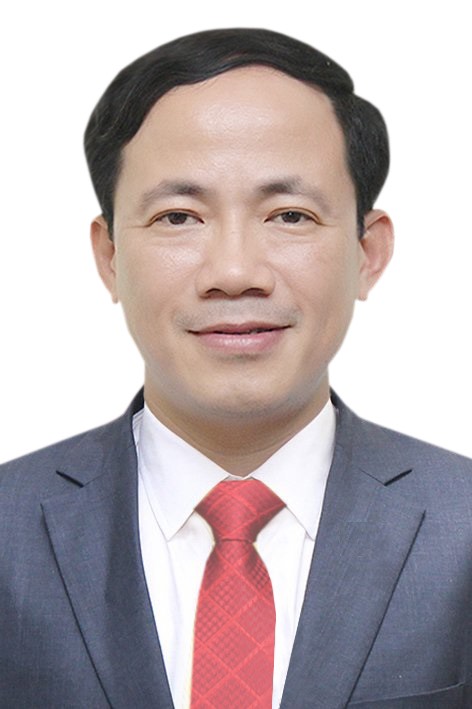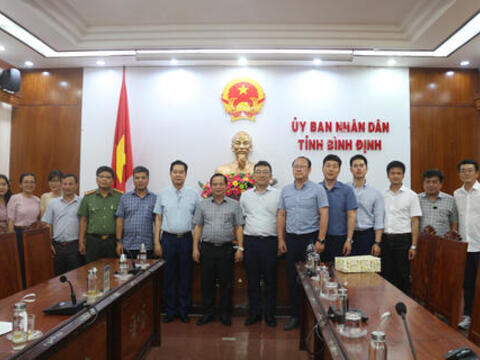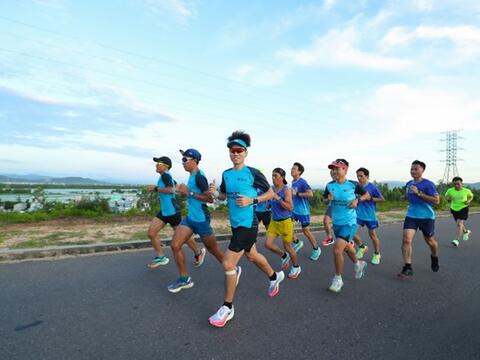Consulting and proposing solutions to prevent and combat waste in the province
(binhdinh.gov.vn) - In Official Dispatch No. 8529/UBND-TH dated October 24, 2024, the Chairman of the Provincial People's Committee assigned the Department of Finance to preside over and coordinate with the Department of Planning and Investment, the Department of Natural Resources and Environment and relevant agencies and units to study the content of the article "Fighting waste" by Comrade To Lam - General Secretary of the 13th Party Central Committee, thereby identifying related issues regarding the current situation of waste in the province and proposing solutions to strengthen waste prevention and combat in the coming time.

General Secretary To Lam (Photo: VOV)
The content of the article "Fighting against waste" is as follows:
1. In every revolutionary stage, our Party and State have always paid special attention to the work of preventing and combating waste, issued many resolutions, directives and conclusions on this issue and led the entire political system and the entire people to organize and implement it with many results. Faced with the requirement of increasing resources and mobilizing the people's strength to bring the country into a new era under the leadership of the Party, the work of preventing and combating waste is facing new, urgent requirements and tasks.
During his lifetime, President Ho Chi Minh always focused on preventing and combating waste. He advised, "Corruption, waste and bureaucracy are the enemies of the people, the army and the Government"[1]; He pointed out that “Corruption is harmful, but waste is sometimes even more harmful: It is more harmful than corruption because waste is very common...”[2]; “Waste, although not taking public money for oneself, is still very harmful to the people and the Government. Sometimes it is more harmful than corruption”[3]; He repeatedly emphasized that “We must cherish public money: All the food, clothing, and use of you are the sweat and tears of our compatriots. We must save, preserve, and not waste[4]; “Corruption, waste, and bureaucracy are "enemies within". If soldiers and people strive to fight foreign invaders but forget to fight internal invaders, they have not fulfilled their duty. Therefore, soldiers and people must enthusiastically participate in that movement”[5]. Not only did he regularly advise, remind, and discuss about thrift and anti-waste from a theoretical perspective, President Ho Chi Minh was an exemplary and shining example of practicing thrift and anti-waste, inspiring the entire Party, the entire people, and the entire army to strive to compete, mobilize, and converge potential and strength to defeat colonialism and imperialism, liberate the nation, and unify the country.
Since the implementation of the renovation process, the Central Executive Committee, the Politburo, and the Secretariat of all terms have issued many directives, resolutions, and conclusions on preventing and combating waste. On August 21, 2006, the 3rd Conference of the Central Executive Committee of the Party (Term X) issued implementing Resolution No. 04-NQ/TW on strengthening the Party's leadership in the work of preventing and combating corruption and waste; on May 25, 2012, the Central Executive Committee (11th tenure) issued Conclusion No. 21-KL/TW on continuing to implement the Resolution of the 3rd Conference of the Central Executive Committee (10th tenure); on December 21, 2012, the Secretariat issued Directive No. 21-CT/TW on promoting thrift practice and combating waste; on December 25, 2023, the Politburo issued Directive 27-CT/TW on strengthening the Party's leadership in the work of thrift practice and combating waste. The documents of the 13th National Congress of the Party clearly stated: “The work of preventing and combating corruption and waste... has not had any clear changes... detection and handling of corruption and waste are still limited... Corruption and waste... are still serious and complicated... increasingly sophisticated, causing frustration in society”[6]. To institutionalize the Party's policies, the Standing Committee of the 10th National Assembly issued the Ordinance on Practicing Thrift and Combating Wastefulness in 1998; the National Assembly passed the Law on Practicing Thrift and Combating Wastefulness in 2005 and 2013; the 2013 Constitution stipulates that “Agencies, organizations and individuals must practice thrift, combat waste, and prevent and combat corruption in socio-economic activities and state management”[7].
Implementing resolutions, directives, conclusions of the Party Central Committee, Politburo, Secretariat, Constitution and provisions of law, Party committees, authorities, departments, branches and organizations from central to local levels have more clearly defined responsibilities in directing and organizing the implementation of waste prevention and combat tasks. The effectiveness and efficiency of state management, exploitation and use of the country's resources have been improved. The state budget has been strictly controlled from the stage of making to implementing estimates and final settlement; procurement, equipment, management and use of assets, means of transport, working equipment in agencies and organizations using the budget have been carried out in accordance with prescribed norms, standards and regimes; the management of investment projects using state capital and assets has had positive changes. The rearrangement and handling of state-owned houses and land have been implemented; management, use of capital and state assets in enterprises, people's awareness of saving in production and consumption have many positive changes. The results of practicing thrift and fighting waste have contributed to the great achievements of the renovation process; achieving and surpassing most of the socio-economic development goals and targets over the terms, even in the context of unprecedented challenges such as epidemics and natural disasters; mobilizing, managing and effectively using human resources, material resources, financial resources, ensuring national defense, security, foreign affairs, social security, and social welfare of the country.
In addition to the results, waste is still quite common, in many different forms, and has been causing many serious consequences for development. In particular, it causes a decline in human resources, financial resources, reduces production efficiency, increases the burden of costs, depletes resources, and widens the gap between rich and poor. Moreover, waste also reduces people's trust in the Party and the State, creates invisible barriers in socio-economic development, and misses development opportunities for the country. Some forms of waste are emerging fiercely today, namely: The quality of building and perfecting laws does not meet the practical requirements of the innovation process, leading to difficulties, hindering implementation, causing loss and waste of resources. Waste of time and effort of enterprises and individuals when administrative procedures are cumbersome, online public services are not convenient and smooth. Waste of development opportunities of localities and the country due to the ineffective operation of the state apparatus in some places and at some times, a number of officials are corrupt, incompetent, avoid, push work, and are afraid of responsibility; due to low quality and productivity. Waste of natural resources; waste of public assets due to ineffective management and use, including disbursement of public investment capital; Equitization, divestment of state-owned enterprises; reorganization and handling of state-owned houses and land, projects using a lot of land and water resources; implementation of national programs and targets, and credit packages to support social security development are mostly very slow. Waste in production, business, and consumption activities of the people occurs in many forms. In addition to the causes leading to each form of waste, the implementation of resolutions, directives, and legal documents on waste prevention and control in practice is still limited; the system of standards, norms, and regimes, some of which are not suitable for reality, is slow to be revised and supplemented; waste handling has not been promoted, often associated with corruption handling as a consequence. There has not been a widespread emulation movement on practicing thrift and fighting waste, as well as strong public opinion to criticize and condemn wasteful behavior. The building of a culture of thrift and non-waste in society has not received due attention.
2. We are facing a historic opportunity to bring the country into the era of national development. This is also the time to shape our future. To seize opportunities, push back challenges, strongly increase resources to care for the people, enrich the country in the new revolutionary period, build a bright future, the work of preventing and combating waste needs to be deployed drastically, synchronously with effective solutions, creating a strong spread, becoming voluntary, self-aware of each cadre, party member and citizen, a culture of behavior in the new era; focusing on a number of key solutions, as follows:
First, it is necessary to unify the perception that the fight against waste is a arduous and complicated fight against "internal invaders"; is part of the class struggle; has a position equivalent to preventing and fighting corruption and negativity to build our Party strong, "ethical, civilized" Focus on widespread propaganda, raising awareness and responsibility among cadres, party members and workers, first of all, setting an example of the leaders of each agency, organization, individual in the public and private sectors about the meaning, importance and responsibility of practicing thrift and fighting waste. Thrift and fighting waste must be clearly demonstrated through commitments, plans, with leadership, specific targets, and carried out regularly and thoroughly. Build and practically implement campaigns and emulation movements on practicing thrift and fighting waste, creating a vibrant and widespread emulation atmosphere throughout the entire Party, people and army. Timely commend, reward and replicate advanced models in implementing thrift and fighting waste well. Second, focus on perfecting and effectively organizing and implementing institutions for preventing and fighting waste; Strictly handle individuals and groups whose actions and behaviors cause loss and waste of public assets. Issue Party regulations to specifically identify wasteful manifestations in the performance of duties of cadres and party members; stipulate the roles and responsibilities of Party committees, Party organizations, authorities, heads of agencies, organizations and units in waste prevention and combat; develop and organize the implementation of the National Strategy on waste prevention and combat. Continue to research and amend legal regulations on practicing thrift and fighting waste in the direction of creating a complete and synchronous legal basis for monitoring, inspecting, detecting, and handling strongly and with high deterrence against wasteful acts; build a truly effective mechanism for monitoring and detecting waste by the Fatherland Front, organizations and people. Step up the detection and strict handling of violations causing great waste of public assets in the spirit of "handling one case to alert the whole region and the whole field".
Third, focus on thoroughly resolving the causes leading to waste of public assets, natural resources, resources for people care and national development. The focus is on: (i) Strongly innovating the work of building, perfecting and enforcing laws, considering this an important factor to prevent and combat waste. In particular, law making must come from practice; learn from experience while doing; not be perfectionist, not hasty; take people and businesses as the center and subject, promptly remove difficulties and obstacles, clear resources, resolve and overcome bottlenecks, expand space, and create momentum for development. Regularly evaluate the effectiveness and quality of policies after promulgation to promptly adjust inadequacies and conflicts, minimize loss and waste of resources. Review and supplement regulations on management mechanisms and economic and technical norms that are no longer suitable to the country's development practices. Complete regulations on handling wasteful behavior; regulations on management and use of public assets; institutions in the application of information technology, digital transformation, creating synchronization in transformation to minimize waste. (ii) Thoroughly reform, minimize administrative procedures, compliance costs of people and businesses; fight bureaucracy. (iii) Use resources, human resources, and material resources effectively; enhance sustainability, optimize work processes; improve energy efficiency. Resolutely resolve long-standing problems of important national projects, key projects, low-efficiency projects, causing great loss and waste; weak commercial banks. Early completion of equitization, improving the operational efficiency of state-owned enterprises. Summarize and replicate the experience of implementing the 500kV line project, circuit 3, Quang Trach (Quang Binh) - Pho Noi (Hung Yen) to shorten the implementation time of key national public investment projects, highways, key inter-regional projects, and projects with spillover effects. (iv) Focus on building and streamlining the organizational apparatus of the Party, National Assembly, Government, Fatherland Front, and socio-political organizations to operate effectively and efficiently; build a team of cadres, especially leaders at all levels with sufficient qualities, capacity, and prestige to match the tasks in the new conditions. Have specific solutions to increase labor productivity, enhance the value of Vietnamese labor in the new period. Fourth, build a culture of preventing and combating waste; make the practice of thrift and combating waste become "voluntary", "voluntary", "daily food, water, clothing". Build a culture of thrift and combating waste in agencies and organizations; Encourage people to practice thrift and combat waste, create a habit of appreciating state assets, people's efforts, collective contributions and individual efforts; consider practicing thrift and combating waste as a daily task. Synchronously implement solutions to build a culture of thrift, awareness of thrift; scientific working mindset, effective time management, forming social moral responsibility associated with strict implementation of discipline. V.I. Lenin said "We must practice utmost thrift in our state apparatus. We must eliminate all traces of waste that monarchical Russia and its capitalist bureaucracy have left behind"[8]; Beloved President Ho Chi Minh emphasized "To advance to socialism, we must overcome shortcomings, that is, we must increase production, save, combat waste, and protect public property"[9]; To firmly lead the country towards socialism, successfully implement the strategic goals of 100 years under the leadership of the Party, 100 years of the founding of the country, we must be determined to prevent and combat waste in conjunction with preventing and combating corruption and negativity.

 Tiếng Việt
Tiếng Việt 








